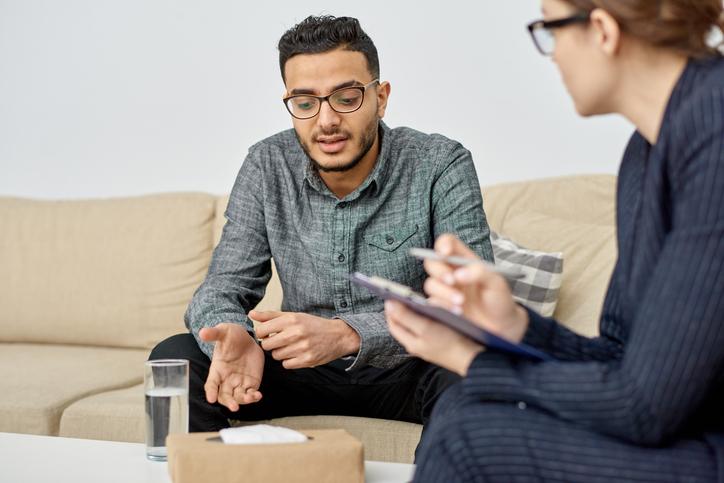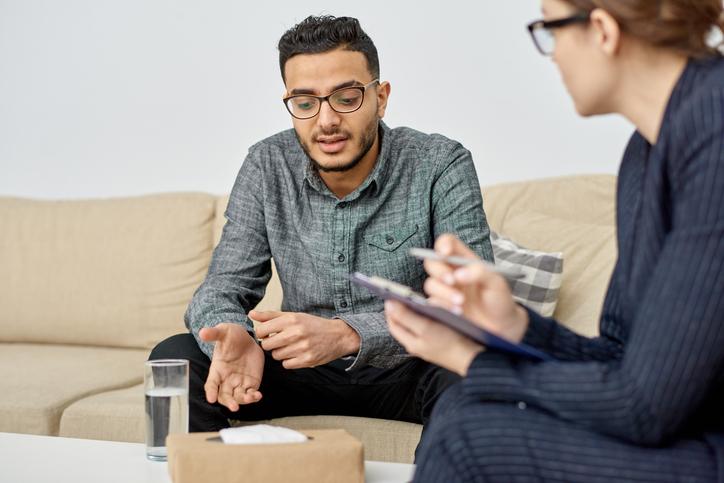
Everyone faces adversity on occasion in their lives. Encountering psychological or physical stress is a shared human experience. However, how people react to stress and adversity is what differentiates us. All humans have varied levels of resilience, defined as the level of mental health problems that occur when subjected to stress (Helmreich, 2017). A resilient person is someone who is only temporarily affected by negative events.
There are several genetic, psychological, social, and environmental factors that influence a person’s resilience. Researchers have discovered that a person tends to be resilient when they have a sense of purpose in life, positive self-esteem, an optimistic outlook, and cognitive flexibility, among other factors (Helmreich, 2017). An effective counselling therapist can work with their clients to improve their resilience by assisting them in building on these factors. Continue reading to find out more.
Teaching Clients to Structure Their Lives in More Resilient Ways
An effective counselling therapist can help their clients build resilience by educating them in various ways they can structure their lives. When facing periods of adversity, pain and stress can lead people to isolate themselves. However, a counselling therapist should help their clients understand the benefits of building a life that is social and well-connected (Building your resilience, 2012). A life that’s structured towards resilience is one that prioritizes connections with empathetic and compassionate people.

It’s important for clients to understand that stress resulting from adversity has physical effectsas well as emotional ones. Structuring one’s life in a way that fosters opportunities to improve personal health is important (Building, 2012). For examples, counselling therapists can work with their clients to help structure their lives in a way that makes time for exercise and healthy eating.
Practice Active Listening During Sessions
An important part of what a person with counselling therapist training does is actively listen to their clients. Active listening is different from passive or distracted listening because it involves fully concentrating on what the speaker is saying in a neutral and non-judgmental manner (Cuncic, 2020). The listener should be fully engaged in the process of listening, practicing patience and verbally and non-verbally signalling their attention. The goal with active listening is for the speaker to understand they’re being heard, which fosters trust (Cuncic, 2020). Active listening enables the speaker become more relaxed and trusting and engage in the conversation on a deeper level (Martin, 2020).
A Counselling Therapist Can Relay Positive Coping Methods
As human beings, when we encounter periods of stress, we generally favour indulgent coping methods. A bucket of ice cream or pack of cigarettes is more easily accessible and tempting than a yoga mat. However, in the long term, consistently relying on unhealthy coping mechanisms can wear down a person’s body and mind, decreasing their ability to be resilient. As a counselling therapist, you can help clients find different coping skills that are healthy and beneficial.

Coping skills can be divided into categories based on the part of the body-mind system they are targeting. Sensory self-care methods can be things such as taking a moment to breathe in fresh air, laying down under a comfortable blanket, or taking a hot shower or bath (Ackerman, 2020). Spiritual self-care methods can involve spending time in nature, meditating or praying, or practicing gratitude (Ackerman, 2020). Mental self-care methods appeal to the logical or analytical sides of a person through tasks such as writing down a list or trying out a new activity (Ackerman, 2020). A counselling school that focuses on helping clients learn how to address their emotional-mental-physical-and spiritual needs will provide therapists with the understanding and skills needed to achieve this balance.
Do you want to begin your counsellor therapist career?
Contact Rhodes Wellness College for more information!
Works Cited
Helmreich, I. et al. (2017). Psychological interventions for resilience enhancement in adults. Cochane Review. https://www.ncbi.nlm.nih.gov/pmc/articles/PMC6464102/
(2012). Building your resilience. American Psychological Association. https://www.apa.org/topics/resilience
Cuncic, A. (2020). How to Practice Active Listening. VeryWellMind. https://www.verywellmind.com/what-is-active-listening-3024343
Martin, A. (2020). Active Listening Skills. The Counsellor’s Guide. http://www.thecounsellorsguide.co.uk/active-listening-skills.html
Ackerman, C. (2020). Coping: Dealing with Life’s Inevitable Disappointments in a Healthy Way. Positive Psychology. https://positivepsychology.com/coping/









